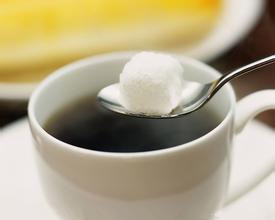The story of the basic knowledge of coffee culture and the name of coffee.
In a consumer society, the so-called necessities are no longer just to meet basic needs. Like coffee, if you don't drink it, you won't die, but if you don't drink it, you won't be able to turn on electricity for a day. Before you know it, it becomes an addiction-everyone has a little addiction, not coffee, but something else.
In Hong Kong, not many people speak French Caf é au lait. People are more familiar with foaming latte. Fortunately, it has not been completely "localized" and is called "latte" coffee. The name of coffee, from coffee beans to coffee brands to coffee shops, is actually the knowledge of life.
When I travel to places where there may not be a coffee shop (like I went to Inner Mongolia earlier), I must bring a box of instant coffee, usually a Nescafe three-in-one. When you order coffee in a tea restaurant or a fast food restaurant such as Meixin, everyone's Lok, Da Happy and so on, you don't need to name the coffee. The former's "Jie Rong" coffee, while the latter's instant coffee, is fragrant, but it always lacks a little flavor.
In the chain and general coffee shops, our choice is nothing more than latte, mocha, cappuccino, expresso, in fact, they are the names of Italian coffee drinks. European coffee has gone through Starbucks and even McDonald's collectivization, Americanization and even globalization. for many customers, the above names have become almost all choices in the coffee kingdom.
In fact, coffee is a bit like red wine, with a place of origin and a coffee farm name, in which coffee farmers plant coffee trees and harvest coffee beans. It is said that postmodern culture changes from "production" to "consumption". When we consume, we come into contact with all kinds of packaging, but it is actually separated from the production process, and the latter is completely backstage (unless deliberately as a display). The above coffee name is an example.
On one occasion, when I was Cultural Mentor for the Ministry of General Studies of the University of Hong Kong, I took four college students to visit Xen, an independent coffee shop, to have a chat while sipping coffee. Most of the coffee choices there are named after the country or region of origin, such as Java Arabica, Colombian Excelso, Sumatra Mandheling, Mocha Java Blend and so on. Yes, "Mocha" (the most authentic Arabic version is "Al-Mahka") is actually the name of a Yemeni port for exporting coffee, which has nothing to do with what people refer to as "chocolate coffee". If you have bought "fairtrade" coffee, you naturally know that their "co-opt" coffee is also named after the country or region of origin, such as Ethiopia (Ethiopian), Guatemala (Guatemalan Rainforest) and Nicaragua (Nicaraguan). Every name is a story.

Important Notice :
前街咖啡 FrontStreet Coffee has moved to new addredd:
FrontStreet Coffee Address: 315,Donghua East Road,GuangZhou
Tel:020 38364473
- Prev

Fine Coffee Culture Story Coffee changes the World 2
Have you ever had coffee? Does the coffee really taste good? In fact, when we enjoy coffee, most of the time we just regard it as a drink, a different, unique, refreshing drink, but seldom think about it: what is the big name of a small coffee? Precisely, coffee is surprisingly big-it is second only to oil in the world.
- Next

The "Coffee Culture" of the Office of General knowledge of Fine Coffee Culture
For a more respectable Office, there are always two shiny coffee pots, and coffee is provided free of charge around the clock. A little more particular, there will even be a small coffee shop for employees to enjoy during the break. As a result, the jingling music of stirring coffee with a metal spoon here has become a kind of corporate culture. Free coffee, for
Related
- How did the Salvadoran coffee industry develop in Central America?
- What exactly does the golden cup extraction of coffee mean?
- The Origin of Coffee flower
- [2023 Starbucks World Earth Day] there are more meaningful things besides free Starbucks coffee!
- What kind of coffee is there in Spain? 9 Flavors of Spanish Coffee
- Aromatic African coffee| Kenya's coffee culture and historical production area
- Liberica Coffee Bean knowledge: the characteristics of Liberian Coffee beans of the three original species of Coffee beans
- The origin and formula of Spanish latte introduces the taste characteristics of Bombon coffee in Valencia, Spain.
- How to adjust the solution of over-extracted coffee
- What is the tasting period of coffee beans? What is the period of coffee and beans? How should coffee wake up and raise beans?

